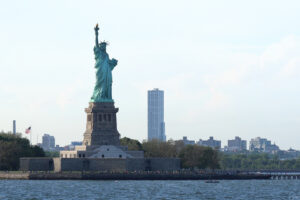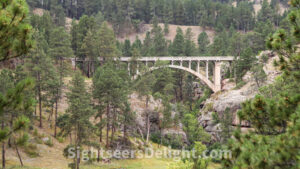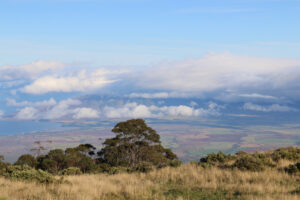There is no more well-known symbol of New York City or the country, for that matter than Lady Liberty herself. French sculptor Frédéric Auguste Bartholdi designed colossal neoclassical sculpture, while Gustave Eiffel oversaw its construction. The Statue of Liberty, which sits on Liberty Island in New York Harbor, was dedicated on Oct. 28, 1886. For anyone who doesn’t want to take the boat to the island should consider the Staten Island Ferry for great views. It won’t cost a dime.
President Theodore Roosevelt in 1903 created Wind Cave National Park. It was the seventh national park and the first cave worldwide designated as a national park. While the park is known as the home of one of the longest caves globally, measuring more than 149 miles, it is home to the largest remaining natural mixed-grass prairie in the country. The park, which covers 33,847 acres, is home to an array of animals, including bison and prairie dogs. Access to the caves has been closed since 2019 because of a broken elevator.
57747
President George W. Bush, using the authority of the Antiquities Act of 1906, created the World War II Valor in the Pacific National Monument on Dec. 5, 2008. The centerpiece of the monument is Pearl Harbor and the USS Arizona Memorial. The monument is also home to the Battleship Missouri, the last battleship commissioned by the United States and was the site of the Japanese surrender on Sept 2, 1945, marking the end of World War II.
96818
Haleakalā National Park is perhaps the crown jewel of Maui. The 33,265-acre national park is a popular destination for tourists wanting to watch the sunrise on the island, even though clouds often obscure the view. At the center of the park is the dormant Haleakalā (East Maui) Volcano. The volcano last erupted more than 400 years ago, likely between 1480 and 1600 AD.



